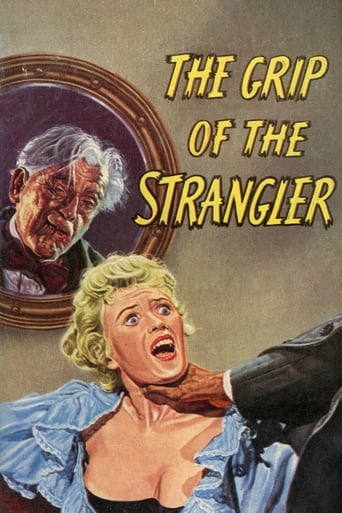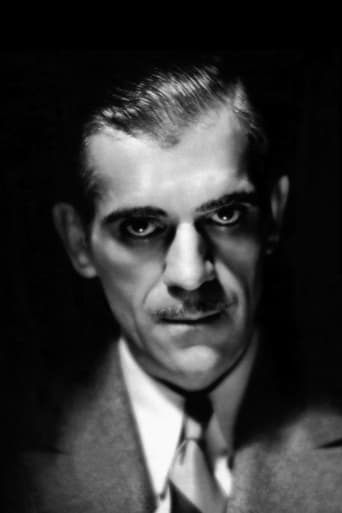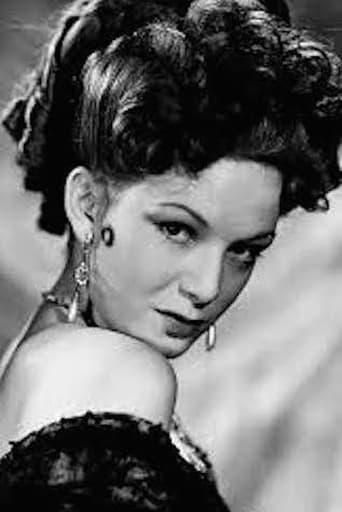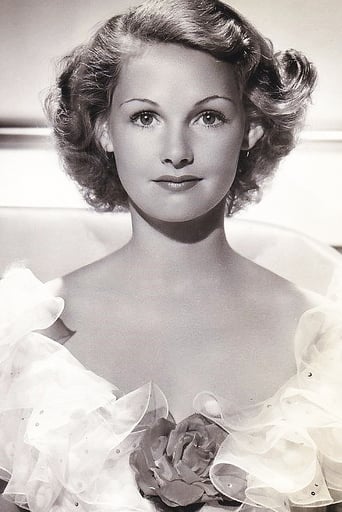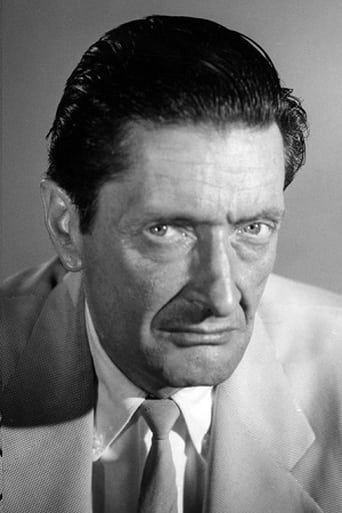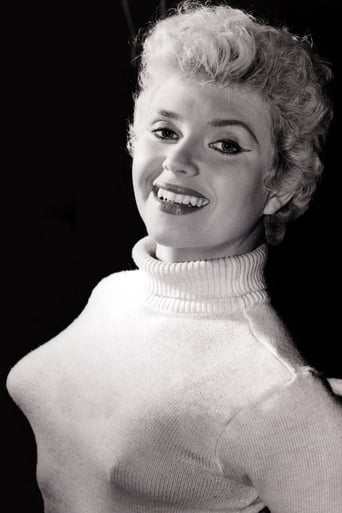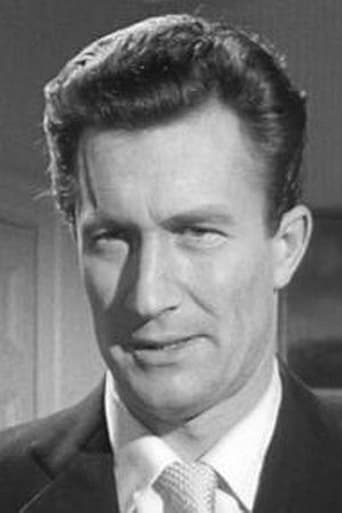mark.waltz
When the weapon a killer uses looks exactly like a butter knife, you know reality is missing from the story you are about to see. That is the case with "The Haunted Strangler", an obscure Gothic thriller starring the legendary Boris Karloff two years after the death of his so-called rival, Bela Lugosi. This spooky looking melodrama is about a doctor's determination to find out the truth about a series of 20 year old murders that sent one man to the gallows and caused the disappearance of the man he believes to be the killer. Karloff, looking exactly as he did 20 years ago, is still the grand old man of horror, and comes off unscathed in a predictable story that sadly becomes obvious from the start. This is, however, still quite enjoyable as a study of grand guignol, the type of Gothic horror movie rarely made today without an overabundance of special effects. It's a step above the Monogram "Z" grade thrillers of the 40's. There are some unintentional chuckles, especially the "gruesome" face of the actual strangler which certainly gives the visual for the term "pickle puss". The scene where Karloff goes exploring a long-closed graveyard in the middle of the night is actually quite chilling, adding to the already spooky photography that is the film's highlight.
dbdumonteil
This film bears the appropriate scars of the time :it begins with the obligatory prologue in the past which is perhaps the best scene: a man is hanged ,and people gather around the scaffold for the show.Later ,Rankin (Boris Karloff) is convinced that they hanged the wrong man and his hard task is to clear his name and to find the real culprit.Of course things will soon turn wrong.This is actually Stevenson's "Doctor Jekyll and Mister Hyde" revised and updated.The split personality has been used too many times to be really absorbing.The only relatively endearing character is the wife who has always known but...
Robert J. Maxwell
"The Haunted Strangler" has been compared to "Dr. Jeykll and Mr. Hyde" and to the Val Lewton horror productions at RKO, and it's easy to see why. Boris Karloff is Rankin, a novelist with a devoted wife and loving step-daughter. Twenty years after the hanging of the notorious Strangler, Rankin develops a theory that the hanged man wasn't guilty at all, but that it was the pathologist in the case, Tennant, who half-strangled and butchered those five women. With the help of a psychiatric intern, and against the advice of his friend Burke (Anthony Dawson), the police detective, Rankin investigates the case and finds evidence incriminating Tennant. Shortly after the Strangler's execution, Tennant was found to be suffering from fits of paralysis and violent outbursts, followed by amnesia for the events. Tennant was ensconced in a mental hospital but escaped with the help of a nurse who had fallen in love with him. About half-way through the film we learn that Rankin himself was Tennant, and his now loving wife was the nurse who helped him. But by this time Rankin has begun to suffer again the murderous paralytic rages and the amnesia that follows.It gets kind of confused somewhere around here. Rankin's recent spells seem to be triggered by the scalpel that was missing from Tennant's collection of surgical instruments. When he grasps the scalpel, Rankin turns into a twisted wreck and he murders without reason. Poor Karloff's face wears a prosthetic or two that twists it all out of symmetry and gives him a look that is at once demonic and full of pain, as if he were suffering the grandfather of all abscessed teeth. On top of that his hair gets messed up. If he first set out to find Tennant guilty, he now must run around trying to convince others that he himself is Tennant.Well, Jeykll and Hyde, yes. Tennant/Rankin is an upright man, no question about it, and his paralytic self is a raving, murderous animal who leaps about to a dissonant, tinkling score. The ego and the id. But Val Lewton, no. Everything in this film is overdone. The acting is in-your-face and not always convincing. The performance of the Newgate turnkey is positively painful. Rankin's butchery isn't as explicit as it would become in the slasher films but it is on-screen butchery. And there is an unnecessary scene of a prisoner being whipped at Newgate Prison. The whipper is a cliché -- a big, fat, bald, sweating sadist. The dialog is entirely functional, without the spark of any inspiration, and the period detail perfunctory. The direction is of the same quality, everything spelled out as if for an audience of children. The scenes in the madhouse are filled with the hoots and howls of the insane so that the hospital sounds more like a zoo. (Alas, this was likely to be too often true before the chemical straight jackets of phenothiazines were discovered in the 1950s. That was the second revolution in mental health. The first was the unchaining of the maniacs at La Bicetre by the humanitarian Philippe Pinel. Before that, they weren't zoos but infernos.) But then -- everybody seems to shout. They run, they shout, they wave their arms and disfigure their faces with emotions unless, like the intern, they are utter blanks.In the end, I felt sorry for Karloff. The actor, not the character. He was seventy or thereabouts when this was shot and, as good natured as William Henry Pratt was, he probably joked about the role. Still, thirty years beyond Frankenstein and he's playing another monster.
dbborroughs
Boris Karloff is a crusading novelist trying to change the British legal system by looking into the Haymarket Strangler case. Boris is convinced the man hung for the crime didn't do it. Of course his investigation turns up proof that he was right, and that he himself was the killer. Well made and well acted little thriller is on okay film to have on in the background. Recently released by Criterion as part of a 4 film set its an okay time killer best watched late at night. To be certain Karloff is wonderful to watch, especially in the scene where he finds the important piece of evidence which proves him right and also slides him into madness. However the mover isn't anything special and can be a bit dull (too much music). (The criterion commentary is excellent and the real reason to pick this up)
